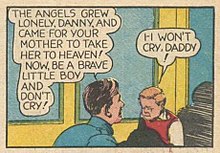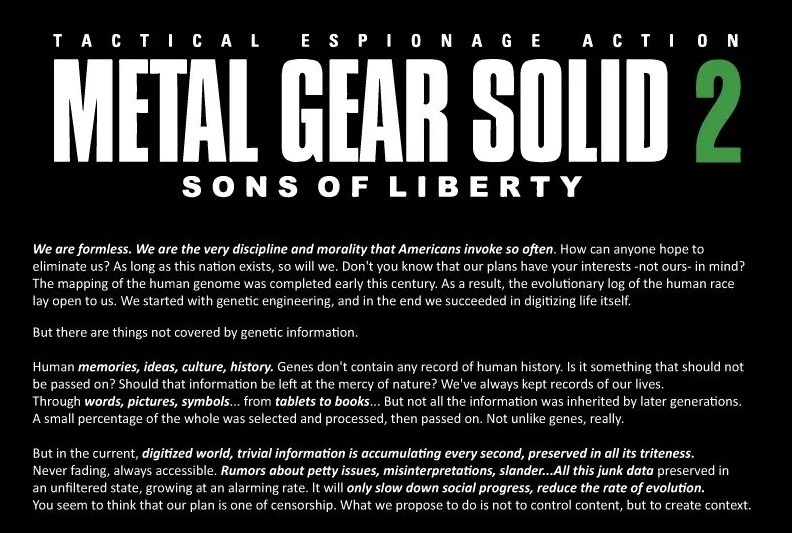If you like this thread, please leave a comment. My posts are written to be evergreen and it is never too late for a bump. These threads also take a long time to read, so by the time you're done, this thread will already be gone. I rely on the kindness of commenters to ensure these threads are seen by anyone at all.
INTRODUCTION: What was P.T. — and why do people still care?

P.T. is an enigmatic work. Directed by Hideo Kojima and Guillermo Del Toro, P.T. was intended to tease the then-unannounced Silent Hills project on PlayStation 4 and stimulate discussion and enthusiasm for their collaborative effort. Short for "Playable Teaser," P.T. was an experimental game format that was meant to demonstrate the tone, themes and atmosphere of Silent Hills without the player even knowing what it was for.
As an escape-room style game, the subject of the teaser remained unknown until it was suddenly solved by a player named SoapyWarpig, who was streaming the game on Twitch. Her completing the game for the first time revealed the game for what it was — a Silent Hills teaser — and the rest is bittersweet history.
While P.T. was intended to be a first taste of what Silent Hills might offer, it ended up being all we got. Silent Hills was canceled the following year amid Konami and Kojima's highly publicized corporate divorce. Guillermo Del Toro's "greasy heart" broke, and so did the hearts of fans.
Yet P.T. went on to influence the whole horror genre. It remains a popular and prestigious entry into the video game canon. We may someday learn more about what Silent Hills was supposed to be — but all we have now are the messages wrapped up in the original introductory experience.
Despite its brevity, P.T. is loaded with themes, politics and philosophy. Due to the complex and confusing nature of the game, and the fact that many players who attempt the puzzle are never able to fully complete it, I think these components are underappreciated. We may never know what Silent Hills was going to be about, but we definitely know the story that was the playable teaser. So let's go over it.
P.T. is a story about masculinity constructs, substance abuse, violent problem solving, and sociopolitical conditioning. Below, you will find references to the game script, other Silent Hill games, and contextual quotes to help give insight on these motifs. Thank you for reading.
Part One: The Radio Drama
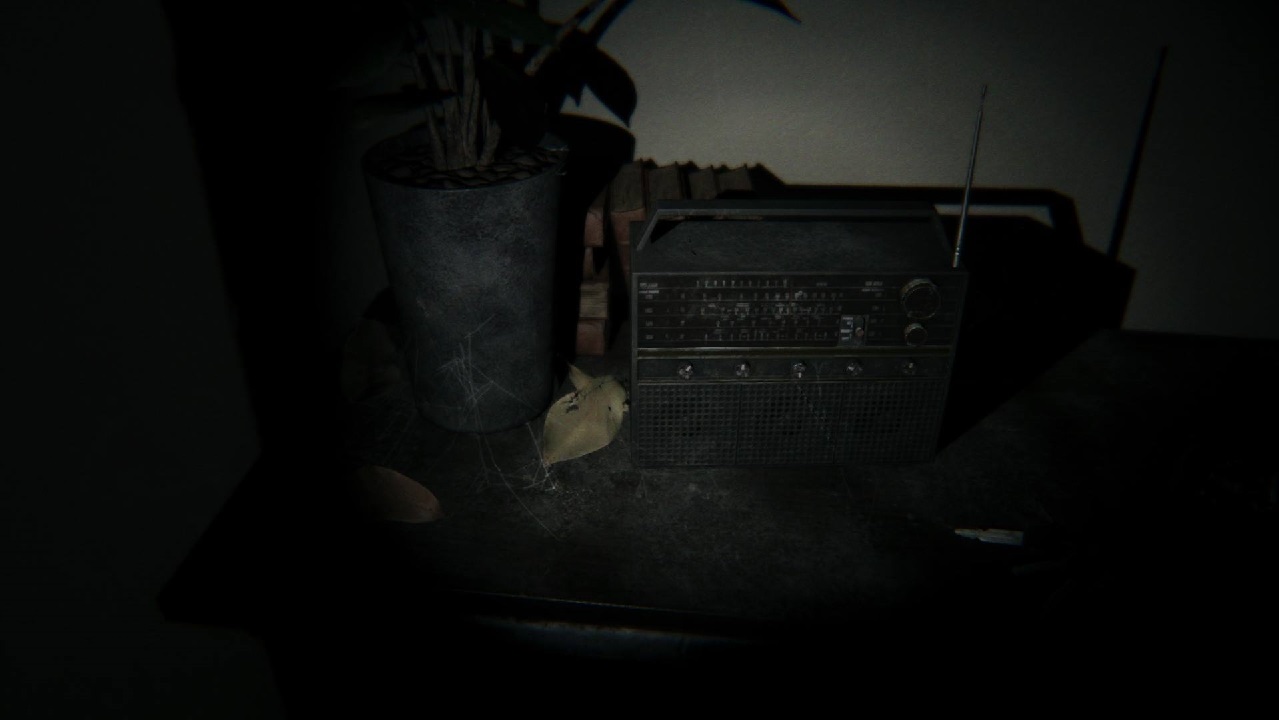
In the early loops through the mysterious hallway that makes up the game's only environment, the player encounters a radio making a news broadcast about a recent trend of homicides. This is the longest sequence of dialog in all of P.T. by a considerable margin. The rest of the game is sparse with information, opting only for brief messages or sounds, so it makes sense that we are meant to put particular emphasis on this lengthy piece of exposition. The text for the broadcast is as follows.
We learn the following from the broadcast:
In the haunted and haunting world of P.T., we don't know what is real and what is a not. This radio broadcast is no exception - we don't know if the main character is imagining the broadcast or if the broadcast is a real transmission from the living world.
There are a few ways to interpret the radio signal:
I personally believe the answer is No. 3, for two reasons. The first is the newscast's swift, dry, and casual tone as it recounts the grisly murders without a tinge of graveness or drama. It's unusual for a newscaster to refer to a slaughtered child as having "had the good sense to hide" before being killed by her father.
The second reason — and the more concrete suggestion that something is off — is the way the radio host says the emergency number 9-1-1. He reads the number as "nine eleven."
Since the father was seen alone shouting numbers into oblivion before the murder, and was found after the murder listening to the radio, the unusual way 9-1-1 is read suggests that we are experiencing an oddity that contributed to the father's break with reality. Hearing the number "nine eleven" spoken in a stand-out way makes us hear a strange number from a radio broadcast where it should not be. We are hearing mysterious numbers in a radio broadcast, just as the murderous father likely did, and we don't go much longer without hearing more.
It is also possible for the radio broadcast to be interrupted in your subsequent routes through the hallway, including the infamous "look behind you" scare. The four lines of interruption are listed above, and each continue a distinct theme being constructed in the background of the game.
The radio tells the listener three meaningful things:
This gives a complex personification to the radio. If the player looks behind them when the radio tells them to, they are killed by the game's wandering spirit, Lisa. This establishes that danger is all around the player. It's out to get them, and only the radio knows things the player does not. The radio ratchets up player paranoia by being their primary source of information. Importance is placed on what the radio says even when it is confusing or nonsensical.
After the "Look Behind You" scare, the ghost of Lisa wanders the hallway. She appears at random and creates a perpetual sense of dread. If she catches the player off-guard, they are killed, and they return to the garage to begin again.
Lisa, with her midsection covered in blood, appears to be the wife who was shot in the stomach in the newscast. It is also possible for the player to gouge out the eye of a woman's photograph in the hallway, which mirrors Lisa's own missing eye, reinforcing the concept that Lisa is patrolling a dark fantasy of her own home.
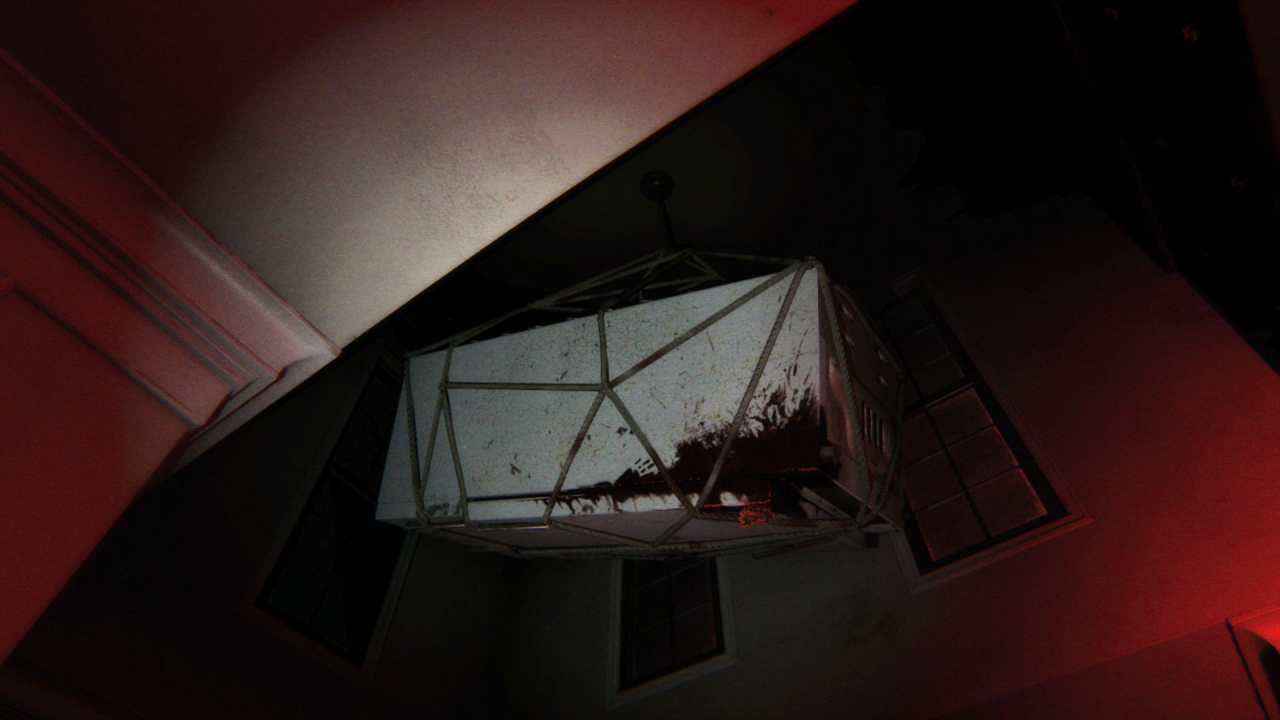
Later, a bloody refrigerator dangles from the ceiling by the radio. It swings and knocks as something inside of it seems to cry out. The radio picks up very briefly to deliver part of another message.
This curt message is extremely bizarre. The imagery of a bloody kitchen, in reference to the gruesome hanging refrigerator, seems to connect this audio snippet back to the father who murdered his wife in kitchen on a Sunday afternoon. But unlike the original broadcast, the father is not found listening to the radio in the car — he is found hanging in the garage.
This message might serve only to obfuscate the truth, and make the real story behind P.T. unknowable. It's possible this contradictory dialog is meant only to portray the radio as unreliable. But it's also possible this short audio is from a different broadcast about a different murder — specifically, the other father who murdered his family with a rifle and a butcher's knife. This father is mentioned at the end of the original radio broadcast as well. A bloody refrigerator that seems to have a person in it may give us more insight into that event than we realize we had. Because what do you do with butchered meat? You refrigerate it.
One man shoots his family and is found in the garage. Another man shoots and butchers his family before hanging himself. What became of the third man, who also shot his family, is never known. But since we are in Lisa's house, listening to the radio, I believe we are playing as the first father. The main character is Lisa's husband.
As the alternate reality escalates, another broadcast features a dark, demonic tone. The voice is in Swedish, and unless the player speaks Swedish, the contents of the message will be confusing and unknown to the player.
Somewhat in step with the strange numbers, the Swedish message sends out information that the main character likely doesn't understand. The message translates as follows:
The backdrop of the game becomes more clear here, as the fiction of what would have been Silent Hills takes place. Some crucial themes are also continued from the earlier radio broadcast.
This broadcast tells the main character:
What is really happening in P.T. starts to take shape here. We have a main character who is circling a house over and over again and interpreting radio signals. These signals play to his sense of fear and paranoia. If the radio is right, then something is going to happen soon. The man is going to cross-over to another world. At the end of the game, that's exactly what he does. But he had to do something first. This brings us to our final radio newscast.
A few things are reiterated:
According to the radio:
This final broadcast is the culmination of all the anger the radio has been stoking in the main character. It is the breaking point for all that paranoia and fear. That pain finally demands he do something. He can't take it anymore. He doesn't deserve any of this. It's too much. There's no going back now.
Fans of Silent Hill 2 will remember how the main character James came to be there in the first place. Driven by the grief of watching his wife die of a terminal illness, James smothers her with a pillow before driving to Silent Hill to process what he did. In this framework for the town, Silent Hill calls people to it. It calls people with demons. It calls people who've done something horrible and forces them to digest what they've done. By trapping them in their own nightmarish construct, Silent Hill makes its visitors reconcile the darkness of their character with the world they left behind.
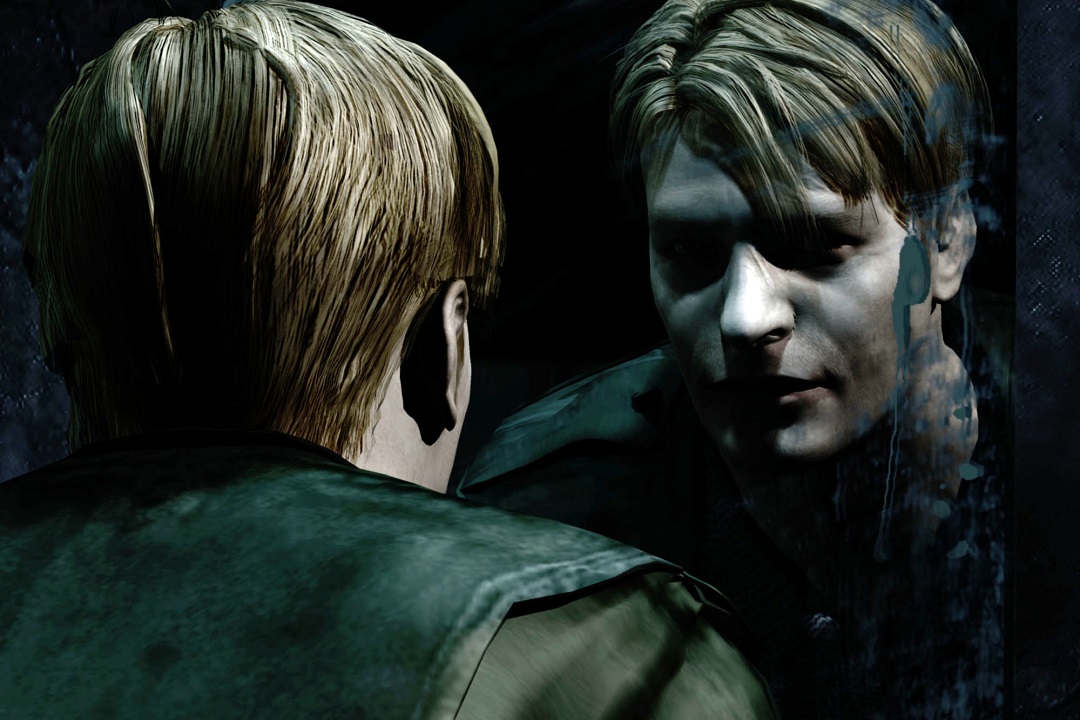
P.T. is a story we've heard before: a man breaks under pressure, acts violently, then crosses over to Silent Hill. At the end of P.T., the main character (played by Norman Reedus) finally leaves the house and wanders alone in a foggy town. If it's not his own story we hear on the radio, perhaps his own is not that different.
One of P.T's more famous moments is the fetus in the sink. This scene occurs after the main character hears the final radio broadcast urging them to take back what's theirs. While the radio broadcasts are the primary disembodied voices we hear while wandering the halls of P.T., there is one that is distinctly different. There is no static or frequency-tuning behind it. This voice is an internal monologue that gives the player more information about the main character. The message that plays addresses the main character directly.
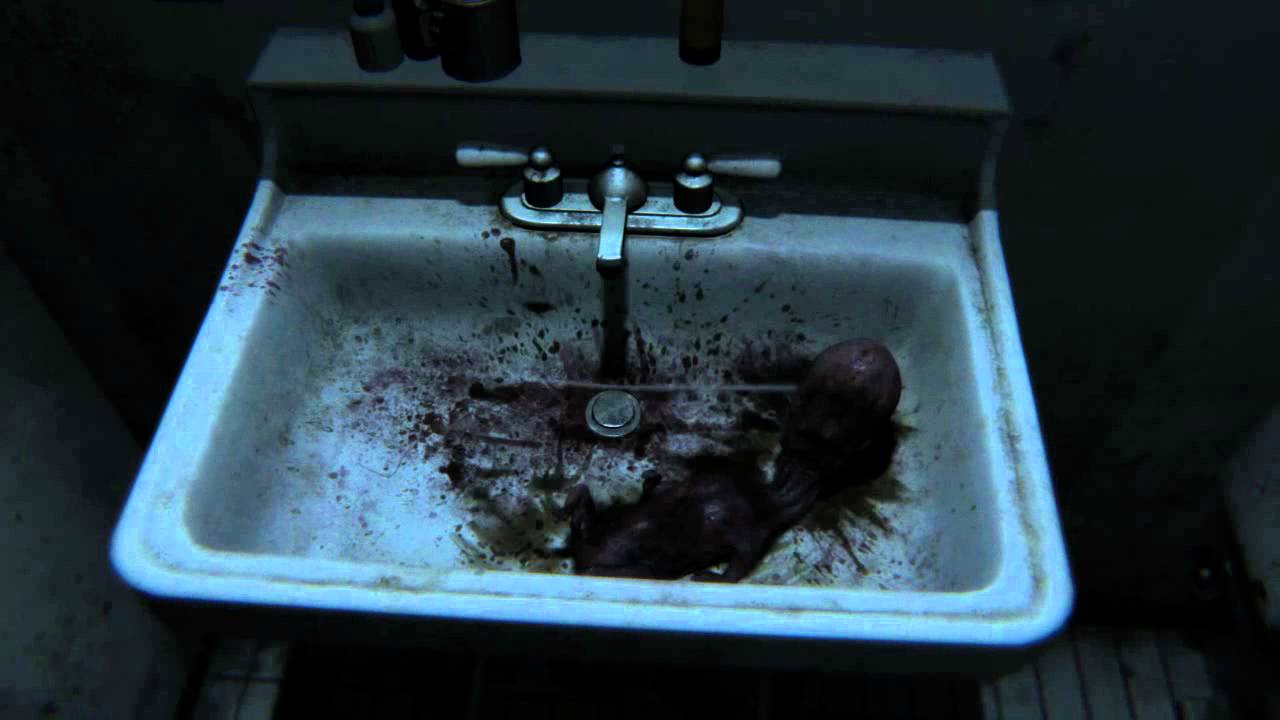
This voice admonishes him for his failure. It mocks him. It mocks his wife. It pits him against another man and makes some sobering implications about what exactly happened between Lisa and him.
This message, combined with what we learn from the radio broadcasts, tells a story. Some details are clear, other details are not, but we come away from these messages with the story of a man.
This man lost his job and could no longer support his family. He became an alcoholic. His wife gets a job at a convenience store as a stopgap to help pay the bills. The man spends all his time listening to local radio and believes his predicament isn't his fault. It's the system that's broken, not him. His wife becomes pregnant, possibly as the result of an affair.
Believing he has been betrayed on the deepest level, and feeling he has lost everything, he buys a gun and murders his family on a Sunday afternoon. He is sure to shoot his pregnant wife in the stomach to kill the fetus. Distraught, he listens to the radio and waits for whatever will happen next.
INTRODUCTION: What was P.T. — and why do people still care?

P.T. is an enigmatic work. Directed by Hideo Kojima and Guillermo Del Toro, P.T. was intended to tease the then-unannounced Silent Hills project on PlayStation 4 and stimulate discussion and enthusiasm for their collaborative effort. Short for "Playable Teaser," P.T. was an experimental game format that was meant to demonstrate the tone, themes and atmosphere of Silent Hills without the player even knowing what it was for.
As an escape-room style game, the subject of the teaser remained unknown until it was suddenly solved by a player named SoapyWarpig, who was streaming the game on Twitch. Her completing the game for the first time revealed the game for what it was — a Silent Hills teaser — and the rest is bittersweet history.
While P.T. was intended to be a first taste of what Silent Hills might offer, it ended up being all we got. Silent Hills was canceled the following year amid Konami and Kojima's highly publicized corporate divorce. Guillermo Del Toro's "greasy heart" broke, and so did the hearts of fans.
Yet P.T. went on to influence the whole horror genre. It remains a popular and prestigious entry into the video game canon. We may someday learn more about what Silent Hills was supposed to be — but all we have now are the messages wrapped up in the original introductory experience.
Despite its brevity, P.T. is loaded with themes, politics and philosophy. Due to the complex and confusing nature of the game, and the fact that many players who attempt the puzzle are never able to fully complete it, I think these components are underappreciated. We may never know what Silent Hills was going to be about, but we definitely know the story that was the playable teaser. So let's go over it.
P.T. is a story about masculinity constructs, substance abuse, violent problem solving, and sociopolitical conditioning. Below, you will find references to the game script, other Silent Hill games, and contextual quotes to help give insight on these motifs. Thank you for reading.
Part One: The Radio Drama

In the early loops through the mysterious hallway that makes up the game's only environment, the player encounters a radio making a news broadcast about a recent trend of homicides. This is the longest sequence of dialog in all of P.T. by a considerable margin. The rest of the game is sparse with information, opting only for brief messages or sounds, so it makes sense that we are meant to put particular emphasis on this lengthy piece of exposition. The text for the broadcast is as follows.
As the Congressional Debate over gun control flares up yet again, we regret to report the murder of the wife and her two children by their husband and father. The father purchased the rifle used in the crime at his local gun store two days earlier.
This brutal killing took place while the family was gathered at home on a Sunday afternoon. The day of the crime, the father went to the trunk of his car, retrieved the rifle, and shot his wife as she was cleaning up the kitchen after lunch. When his 10-year-old son came to investigate the commotion, the father shot him, too. His 6-year-old daughter had the good sense to hide in the bathroom, but reports suggest he lured her out by telling her it was just a game. The girl was found shot once in the chest from point-blank range. The mother, who he shot in the stomach, was pregnant at the time. Police arriving on-scene after neighbors called 911 found the father in his car, listening to the radio.
Several days before the murders, neighbors say they heard the father repeating a sequence of numbers in a loud voice. They said it was like he was chanting some strange spell. There was another family shot to death in the same state last month, and in December last year, a man used a rifle and meat cleaver to murder his entire family. In each case, the perpetrators were fathers. State police say the string of domestic homicides appears unrelated, though it could be part of a larger trend, such as employment, childcare, and other social issues facing the average family.
We learn the following from the broadcast:
1) Against the backdrop of legislative controversy, a man murders his family with a firearm. This firearm was purchased locally and legally.
2) The father is portrayed as unstable, but methodical. He repeats strings of numbers but also commits a calculated crime, luring his daughter out of hiding and shooting his wife in the stomach (more on that later).
3) The father was found listening to the radio.
4) This most recent murder is part of a trend of fathers murdering their families with firearms. While apparently unrelated, the host speculates that social pressures may be motivating these violent crimes. There have been three in the state so far.
2) The father is portrayed as unstable, but methodical. He repeats strings of numbers but also commits a calculated crime, luring his daughter out of hiding and shooting his wife in the stomach (more on that later).
3) The father was found listening to the radio.
4) This most recent murder is part of a trend of fathers murdering their families with firearms. While apparently unrelated, the host speculates that social pressures may be motivating these violent crimes. There have been three in the state so far.
In the haunted and haunting world of P.T., we don't know what is real and what is a not. This radio broadcast is no exception - we don't know if the main character is imagining the broadcast or if the broadcast is a real transmission from the living world.
There are a few ways to interpret the radio signal:
1) The broadcast is a legitimate newscast from the real world of P.T. It is not imagined or part of the alternate reality, although it can be heard from within it.
2) The broadcast is part of the alternate reality and none of the events described actually happened; rather, the events are an elaborate fantasy projected by the main character.
3) The events the broadcast describes are real, but the broadcast itself is imagined or modified by the alternate reality.
2) The broadcast is part of the alternate reality and none of the events described actually happened; rather, the events are an elaborate fantasy projected by the main character.
3) The events the broadcast describes are real, but the broadcast itself is imagined or modified by the alternate reality.
I personally believe the answer is No. 3, for two reasons. The first is the newscast's swift, dry, and casual tone as it recounts the grisly murders without a tinge of graveness or drama. It's unusual for a newscaster to refer to a slaughtered child as having "had the good sense to hide" before being killed by her father.
The second reason — and the more concrete suggestion that something is off — is the way the radio host says the emergency number 9-1-1. He reads the number as "nine eleven."
Since the father was seen alone shouting numbers into oblivion before the murder, and was found after the murder listening to the radio, the unusual way 9-1-1 is read suggests that we are experiencing an oddity that contributed to the father's break with reality. Hearing the number "nine eleven" spoken in a stand-out way makes us hear a strange number from a radio broadcast where it should not be. We are hearing mysterious numbers in a radio broadcast, just as the murderous father likely did, and we don't go much longer without hearing more.
Don't touch that dial now, we're just getting started.
You can't trust the tap water.
204863.
Look behind you. I said, look behind you.
It is also possible for the radio broadcast to be interrupted in your subsequent routes through the hallway, including the infamous "look behind you" scare. The four lines of interruption are listed above, and each continue a distinct theme being constructed in the background of the game.
The radio tells the listener three meaningful things:
1) Do not stop listening to the radio.
2) Do not trust the world around you.
3) Another mysterious number.
2) Do not trust the world around you.
3) Another mysterious number.
This gives a complex personification to the radio. If the player looks behind them when the radio tells them to, they are killed by the game's wandering spirit, Lisa. This establishes that danger is all around the player. It's out to get them, and only the radio knows things the player does not. The radio ratchets up player paranoia by being their primary source of information. Importance is placed on what the radio says even when it is confusing or nonsensical.
After the "Look Behind You" scare, the ghost of Lisa wanders the hallway. She appears at random and creates a perpetual sense of dread. If she catches the player off-guard, they are killed, and they return to the garage to begin again.
Lisa, with her midsection covered in blood, appears to be the wife who was shot in the stomach in the newscast. It is also possible for the player to gouge out the eye of a woman's photograph in the hallway, which mirrors Lisa's own missing eye, reinforcing the concept that Lisa is patrolling a dark fantasy of her own home.

Later, a bloody refrigerator dangles from the ceiling by the radio. It swings and knocks as something inside of it seems to cry out. The radio picks up very briefly to deliver part of another message.
After killing his family, the father hung himself with a garden hose they had in the garage.
This curt message is extremely bizarre. The imagery of a bloody kitchen, in reference to the gruesome hanging refrigerator, seems to connect this audio snippet back to the father who murdered his wife in kitchen on a Sunday afternoon. But unlike the original broadcast, the father is not found listening to the radio in the car — he is found hanging in the garage.
This message might serve only to obfuscate the truth, and make the real story behind P.T. unknowable. It's possible this contradictory dialog is meant only to portray the radio as unreliable. But it's also possible this short audio is from a different broadcast about a different murder — specifically, the other father who murdered his family with a rifle and a butcher's knife. This father is mentioned at the end of the original radio broadcast as well. A bloody refrigerator that seems to have a person in it may give us more insight into that event than we realize we had. Because what do you do with butchered meat? You refrigerate it.
One man shoots his family and is found in the garage. Another man shoots and butchers his family before hanging himself. What became of the third man, who also shot his family, is never known. But since we are in Lisa's house, listening to the radio, I believe we are playing as the first father. The main character is Lisa's husband.
As the alternate reality escalates, another broadcast features a dark, demonic tone. The voice is in Swedish, and unless the player speaks Swedish, the contents of the message will be confusing and unknown to the player.
Somewhat in step with the strange numbers, the Swedish message sends out information that the main character likely doesn't understand. The message translates as follows:
Close your eyes. Let your ears listen to the radio. Do you hear my voice? Can you hear your own soul's scream? Let us choose: my voice that tells the future, or your tortured (inaudible).
Well, what do you choose? You can choose. Your life, your future. Wise as you are, you might already have discovered it. Yes, the radio drama from 75 years ago was true. They are here on our earth, and they monitor and see all. Don't trust anyone. Don't trust the police. They are already controlled by them. That's the way it has been for 75 years now. Only our best will prevail. You have a right. A right to become one of us. So, welcome to our world. Very soon the gates to a new dimension will open. 204863. 204863.
The backdrop of the game becomes more clear here, as the fiction of what would have been Silent Hills takes place. Some crucial themes are also continued from the earlier radio broadcast.
This broadcast tells the main character:
1) Close your eyes to the world around you so you can better hear the radio. This can also be interpreted figuratively: ignore reality and accept new truth from the radio.
2) Listen only to the radio, which tells the truth. Even stories the radio told 75 years ago were true. Everything from the radio is true.
3) Don't trust anyone except your gut and the radio. You are smart and the world is warped — institutions are controlled by an unseen force and can't be trusted either. It's you versus them.
4) You're entitled to your rage. You're entitled to your frustration. You're smarter than everyone else.
5) You are not alone. There is a whole other world of people just like you.
2) Listen only to the radio, which tells the truth. Even stories the radio told 75 years ago were true. Everything from the radio is true.
3) Don't trust anyone except your gut and the radio. You are smart and the world is warped — institutions are controlled by an unseen force and can't be trusted either. It's you versus them.
4) You're entitled to your rage. You're entitled to your frustration. You're smarter than everyone else.
5) You are not alone. There is a whole other world of people just like you.
What is really happening in P.T. starts to take shape here. We have a main character who is circling a house over and over again and interpreting radio signals. These signals play to his sense of fear and paranoia. If the radio is right, then something is going to happen soon. The man is going to cross-over to another world. At the end of the game, that's exactly what he does. But he had to do something first. This brings us to our final radio newscast.
I've got message for all you folks down there in Radio-Land. Now's the time for action. Our society is rotten to the core. I'm talking to all the fine, upstanding folks got their welfare cut, got their jobs pulled out from under 'em. Yeah, you! You know what to do! Now's the time! Do it!
(A message appears on the wall that states "there's no going back now.")
A few things are reiterated:
According to the radio:
1) You are a good and hard-working person.
2) It's not your fault that society has failed you.
3) You have to destroy it.
2) It's not your fault that society has failed you.
3) You have to destroy it.
This final broadcast is the culmination of all the anger the radio has been stoking in the main character. It is the breaking point for all that paranoia and fear. That pain finally demands he do something. He can't take it anymore. He doesn't deserve any of this. It's too much. There's no going back now.
Fans of Silent Hill 2 will remember how the main character James came to be there in the first place. Driven by the grief of watching his wife die of a terminal illness, James smothers her with a pillow before driving to Silent Hill to process what he did. In this framework for the town, Silent Hill calls people to it. It calls people with demons. It calls people who've done something horrible and forces them to digest what they've done. By trapping them in their own nightmarish construct, Silent Hill makes its visitors reconcile the darkness of their character with the world they left behind.

P.T. is a story we've heard before: a man breaks under pressure, acts violently, then crosses over to Silent Hill. At the end of P.T., the main character (played by Norman Reedus) finally leaves the house and wanders alone in a foggy town. If it's not his own story we hear on the radio, perhaps his own is not that different.
One of P.T's more famous moments is the fetus in the sink. This scene occurs after the main character hears the final radio broadcast urging them to take back what's theirs. While the radio broadcasts are the primary disembodied voices we hear while wandering the halls of P.T., there is one that is distinctly different. There is no static or frequency-tuning behind it. This voice is an internal monologue that gives the player more information about the main character. The message that plays addresses the main character directly.

You got fired, so you drowned your sorrows in booze. She had to get a part-time job working a grocery store cash register. Only reason she could earn a wage at all is the manager liked how she looked in a skirt. You remember, right? Exactly 10 months back.
This voice admonishes him for his failure. It mocks him. It mocks his wife. It pits him against another man and makes some sobering implications about what exactly happened between Lisa and him.
This message, combined with what we learn from the radio broadcasts, tells a story. Some details are clear, other details are not, but we come away from these messages with the story of a man.
This man lost his job and could no longer support his family. He became an alcoholic. His wife gets a job at a convenience store as a stopgap to help pay the bills. The man spends all his time listening to local radio and believes his predicament isn't his fault. It's the system that's broken, not him. His wife becomes pregnant, possibly as the result of an affair.
Believing he has been betrayed on the deepest level, and feeling he has lost everything, he buys a gun and murders his family on a Sunday afternoon. He is sure to shoot his pregnant wife in the stomach to kill the fetus. Distraught, he listens to the radio and waits for whatever will happen next.
Last edited:



